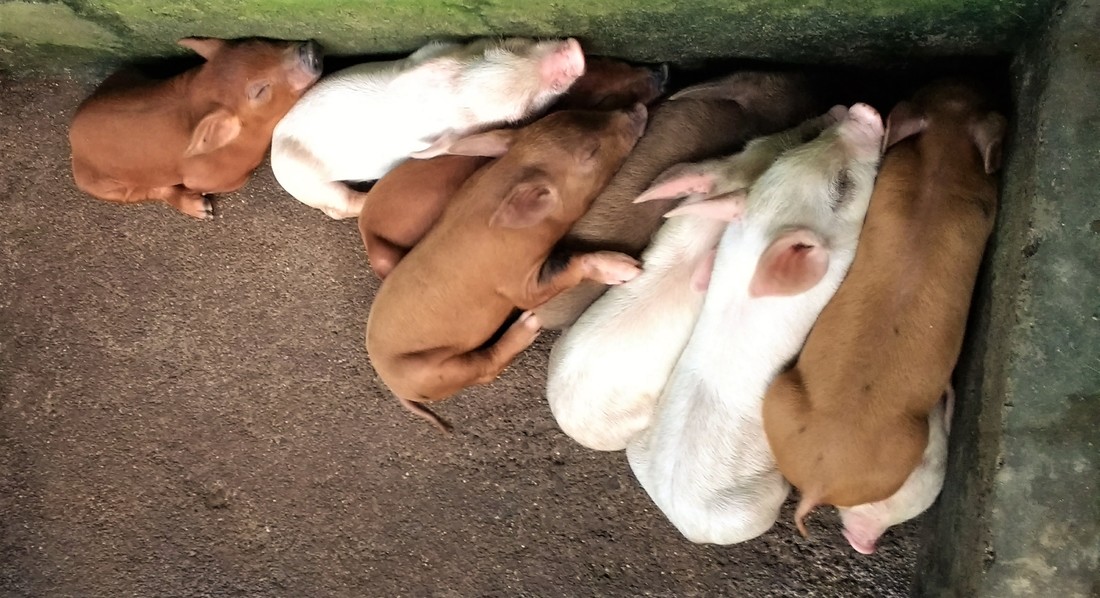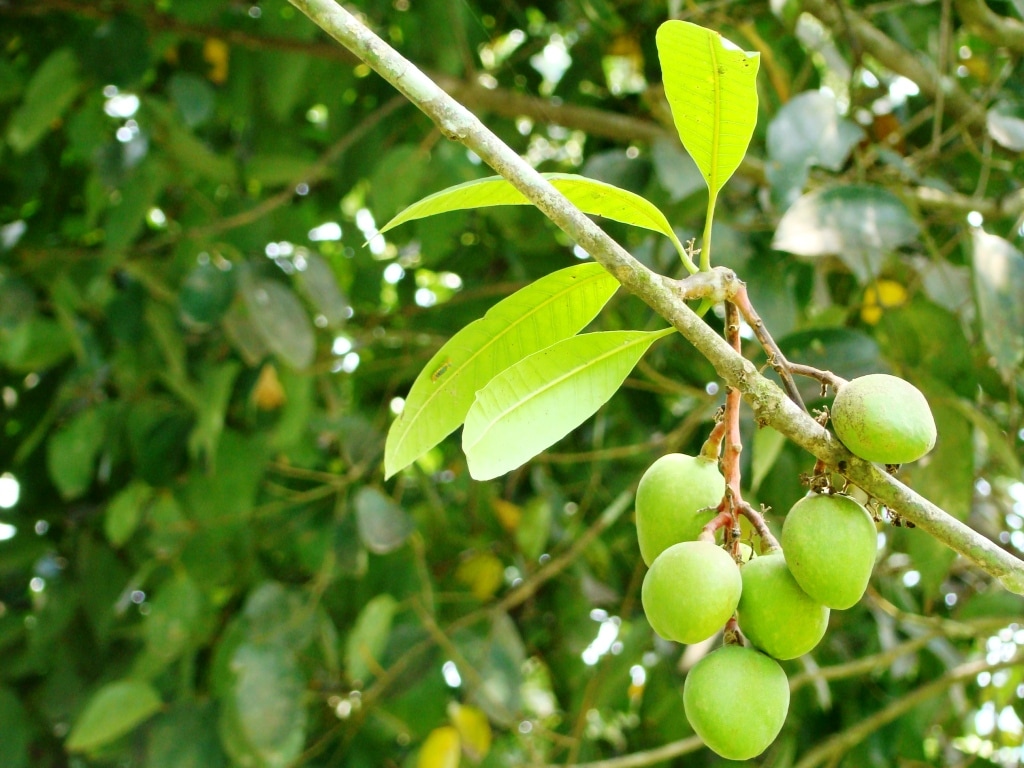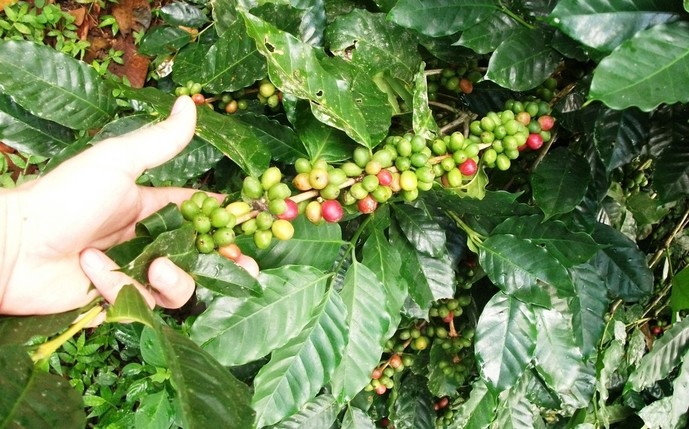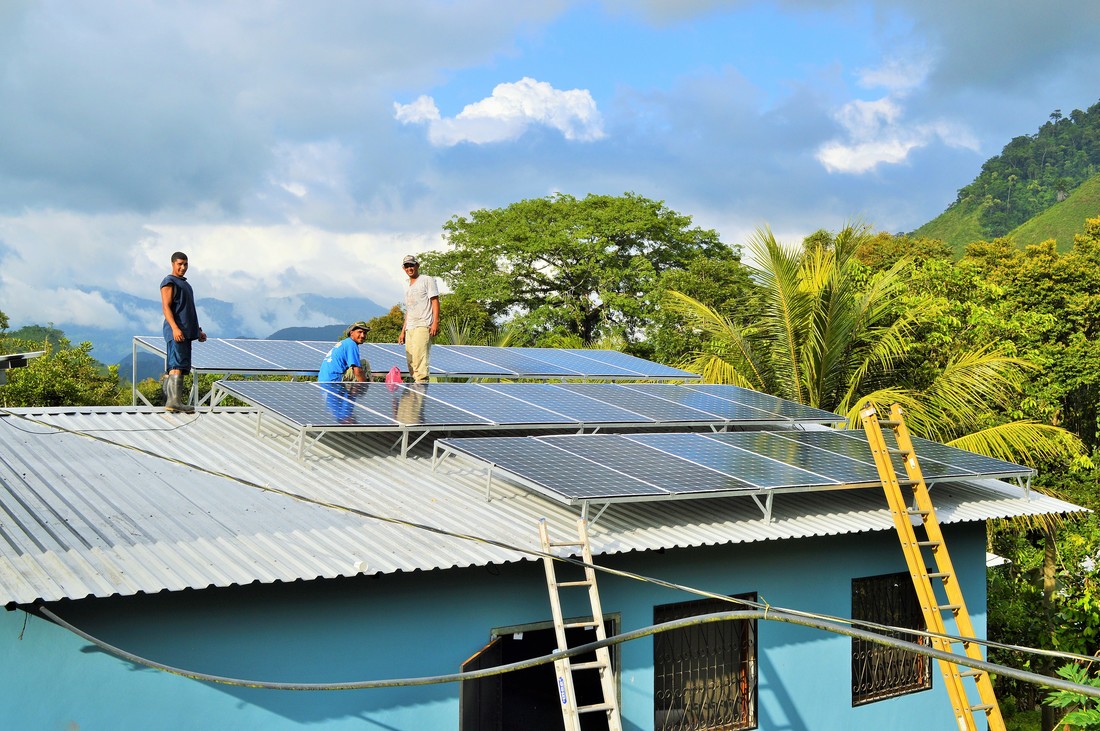We're using our 125+ acre farm to help sustain our ministry. We care deeply about being good stewards of our financial resources. |
Livestock for Protein & DairyWe raise dairy and beef cows, pigs, and laying hens to provide us with milk, meat, and eggs. By raising these animals we are able to offset our most expensive grocery costs. This makes such a difference in our finances.
We also value the work experience that these animals provide for our young people. Several of our older kids and teenagers love to help with the milking and other chores. They hope to gain experience now for working in agriculture later in life. |
Orchards & HardwoodsWhen we purchased our property at the end of 2007, our first project was to plant hardwoods. We have 12 acres of mahogany and teak trees. Our plan is to let these trees grow for at least 20 years and then use their harvest to put our kids through university.
We also have 10+ acres of fruit orchards. We're growing bananas, citrus fruit, avocados, mangoes, and more. As an added bonus, we're using honey bees to help pollinate our fruit trees and provide us with amazing tropical honey. |
SWEET ESPERANZA COFFEE
|
Producing coffee is one of our most effective ways of becoming self-sustainable. Sweet Esperanza Coffee is a shade-grown, Arabica coffee with a dark roast that's gotten some rave reviews! Currently our coffee is available for sale in Honduras or through church partners. If your church would be interested in using or selling our coffee, please write us. |
Solar EnergyWe produce over half of our electricity through solar power. Since Honduras has extremely expensive rates for electricity, this saves us a lot of money and keeps our monthly budget lower.
As we expand to a second campus of GH2K we will be growing and improving our solar power capabilities. |
What's Next?- Producing 100% of our energy by solar power (saving us over $6,000/year!) - Raising 80% of our meat with our own animals. - Providing 100% of our dairy from our cows: milk, cheese, sour cream, and yogurt. - Planting 3 more acres of coffee to produce 6,000 lbs of coffee annually. - Experimenting with aquaponics. - Creating a tropical exhibition garden for giving tours. |




